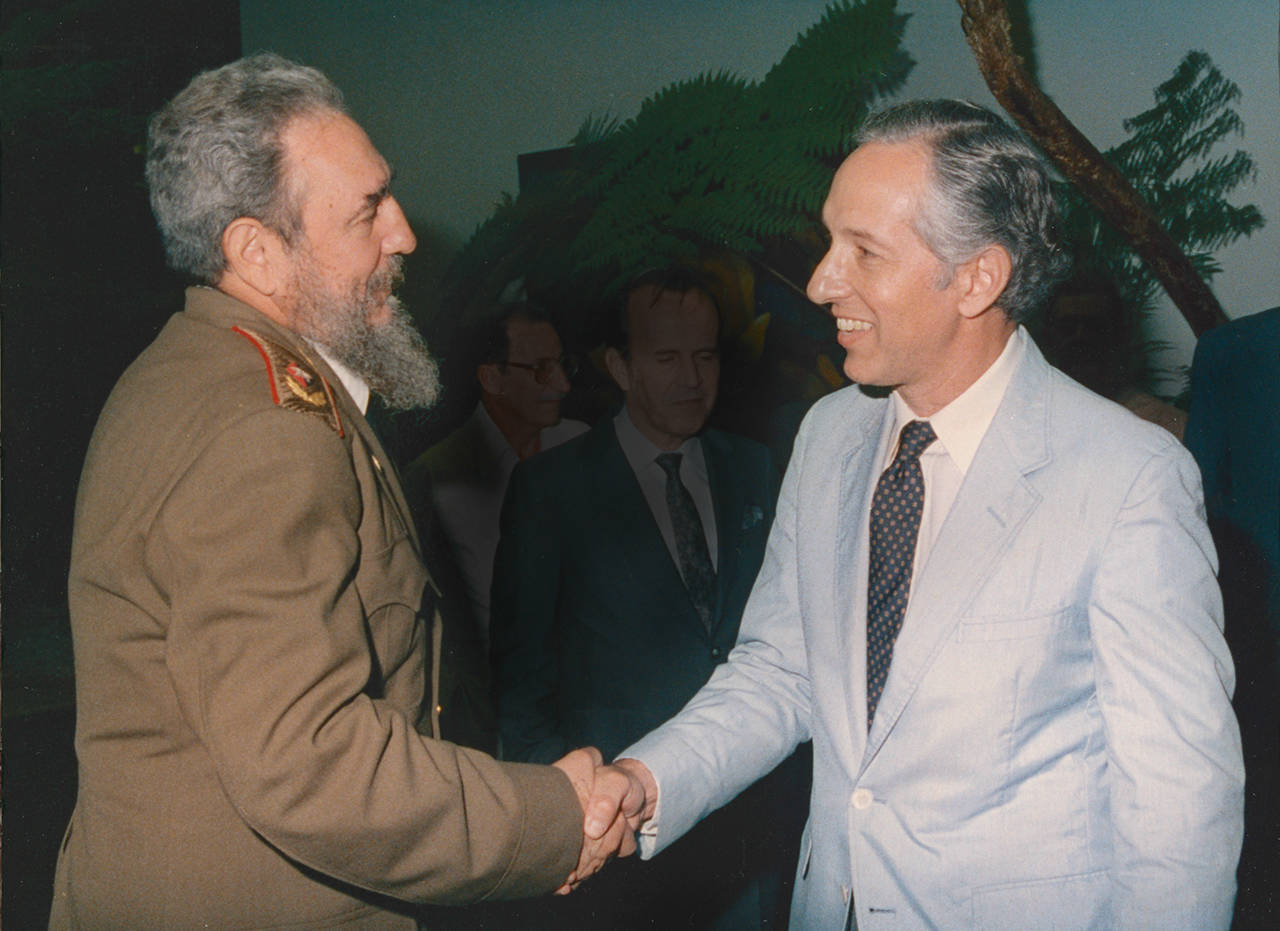By Gretchen Wing
On Wednesday, March 15, at 7 p.m. at Woodmen Hall, Richard Fagen will present “Stories and Photos from Cuba in the 1960s.” The event will benefit the Lopez International Student Travel Education Program (InSTEP).
Richard, then a young professor of Political Science at Stanford, was the first American scholar to travel legally to Cuba after diplomatic relations were broken in 1961. Because of the difficulty of securing a Cuban visa, he could not make his first trip until 1966, but two more trips, both lasting two months, followed in 1968 and 1969. The result: two books on Cuba and an unparalleled archive of documents and photographs.
Drawing on his photographs and interviews—including several long evenings spent with Fidel Castro — Richard will share his perspective on the way average Cubans experienced the Revolution in its first turbulent decade. The photographs to be shown have been published in Newsweek and the Journal of the Royal Geographical Society in London, among others.
“I understood only after I’d been there how deep the revolution cut into daily life,” Richard said. His striking photos show healthy-looking babies in a collective crib at a day nursery; young teachers-in-training getting their hands dirty preparing soil for a coffee plantation; urban bureaucrats cutting sugar cane in the countryside. Richard was fascinated with this “massive attempt to take a country and transform its everyday culture,” and Lopezians will now be treated to both visual and verbal reflections on that social experiment.
All of these efforts were aimed at creating the new Cuban man (and woman), a citizen for whom “conciencia” has replaced “egoismo.” In other words, Richard said, “ask not what you can do for yourself, but what you can do for the revolution.”
After a decade studying the Cuban Revolution, Richard taught in Chile for almost two years in the early 1970s, leaving just weeks before the 1973 military coup. His articles and Congressional testimony about the coup and its aftermath led the Pinochet Government to declare him persona non grata for almost five years. In acknowledgment of his work in support of a return to democracy in Chile, the current government recently awarded him the Order of Bernando O’Higgins, the highest honor that Chile bestows on non-citizens.
In 1979 the San Diego Union sent Richard to Nicaragua to cover the Sandinista insurrection. Richard became deeply involved in both the critique of U.S. policy in Central America and the human rights tragedy unfolding in the region.
Determined to spend more time on Lopez Island, where they had built a home in 1987, Richard and his wife Deborah Bundy took early retirement from Stanford and moved here full-time in 1993. Richard’s passion for education and for the life-changing power of travel led to his involvement in InSTEP.
For the past 17 years, InSTEP has dedicated itself to ensuring that no qualified Lopez Island student is financially prevented from participating in teacher-led foreign trips.
“Neither the School nor the District contributes one dime to this program,” Richard explains. “Nor does the Lopez Educational Foundation. All expenses are met by students, their families, and InSTEP. In short, no InSTEP, no trips.” He adds, “Neither San Juan Island nor Orcas regularly sends students overseas, yet little Lopez manages to give almost half of our high school students this opportunity.” InSTEP is staffed entirely by volunteers. Every dollar contributed goes 100 percent to support student travel and study.
“We have a filing cabinet full of testimonials from folks whose Lopez High School trips changed their lives,” said Richard. A large turnout on March 15 will help to ensure the continuation of these trips while giving Lopezians a unique look at America’s fascinating, barely-known neighbor.
More information about InSTEP may be found at www.lopezinstep.org.



